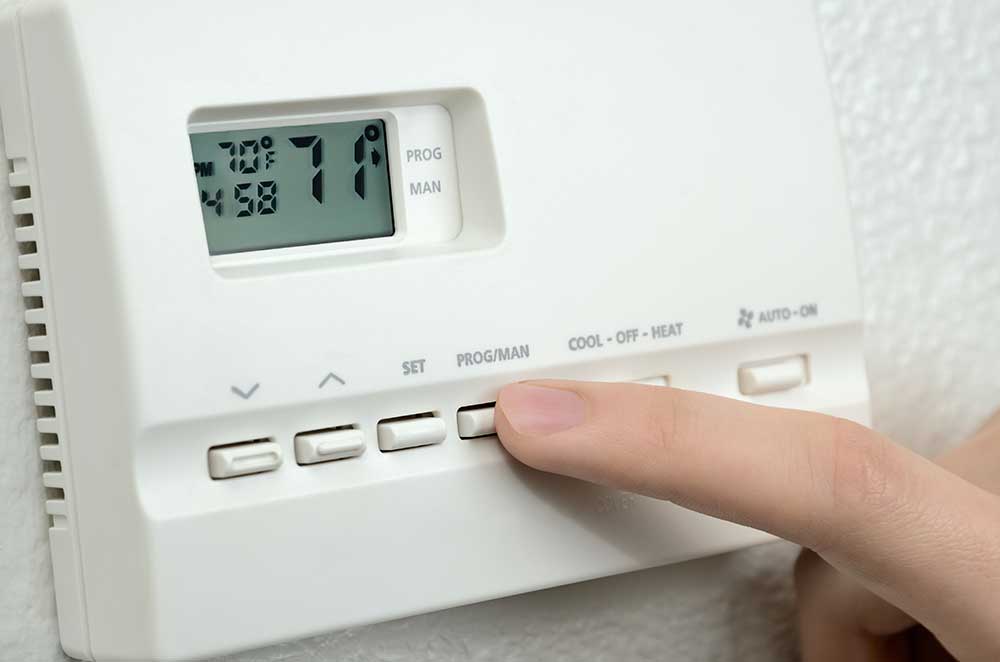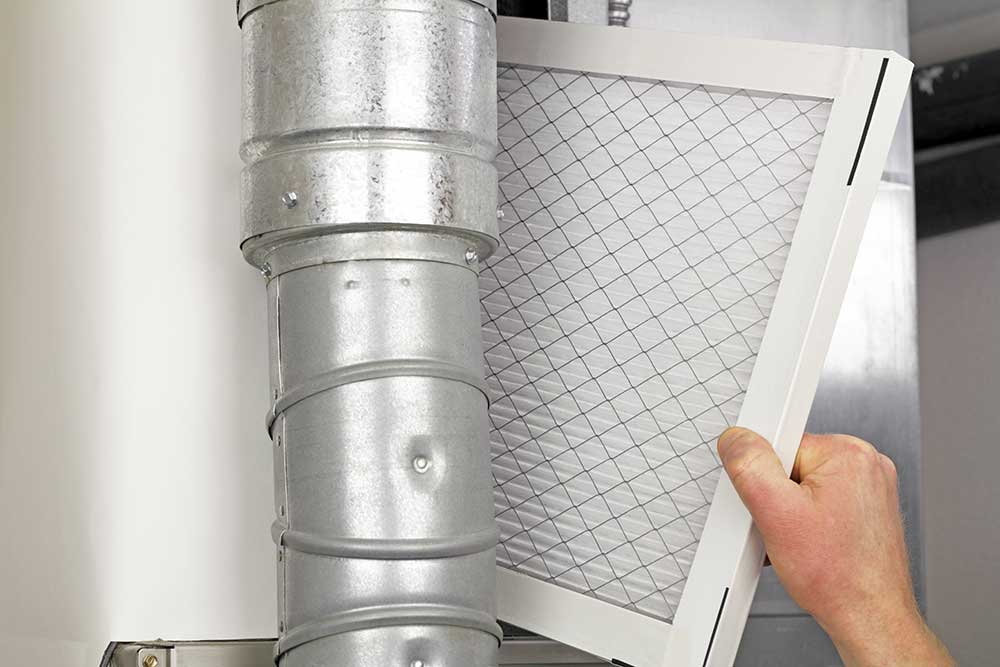
Thermostats function by detecting the air temperature inside your home and, when they reach a pre-set upper or lower limit, turning the heating or cooling system on or off until the air reaches the desired temperature. Home climate control thermostats are binary: they just turn the system on or off, and it’s how often they do it that regulates the temperature in the home.
Whether it’s the air conditioning unit cooling the home or the furnace heating it, the detection equipment must be accurate for the system to work properly. If you find that you can never get the temperature right inside your home no matter how you set it, the thermostat itself might be the issue.
Old-Fashioned Thermostats
The internal workings of most older thermostats rely on a bi-metallic strip, composed of two strips of different metals bonded to each other. Different metals expand at different rates in response to heat, so as the temperature changes, the bimetallic strip bends one way or the other. When it reaches a certain position, which you set by adjusting the thermostat, it closes or opens an electrical circuit, turning the heating or cooling system on or off.
Instead of the bimetallic strip, a few older thermostats rely on a gas-filled bellows that expands or contracts in response to changes in temperature, but the basic principle is the same: something with physical properties changes size in response to temperature changes, and this opens or closes a switch.
These “physical-change” systems are delicate and not as accurate as modern, electronic thermostats. Electronic thermostats generally retain their accuracy as long as they have a constant supply of voltage. The most common cause of an inaccurate performance in an electronic thermostat is a low or dead battery – an easy problem for any homeowner to resolve.
Modern Thermostats
Most electronic thermostats do a lot more than turn on and off in response to changes in air temperature. The majority of them are programmable, allowing you to set different temperatures for different times of the day – for example, during the heating season, to begin warming up a half hour before you get out of bed in the morning and a half hour before you get home from work in the evening, and allowing the home to cool down when you’re tucked into bed or at the office. Slightly more sophisticated programmable thermostats can have different programs set for different days of the week, to accommodate different schedules on weekends, for example.
The newest advance in thermostat technology involves IP (internet protocol) control. Of course these can be programmed for a daily or weekly schedule, but you can also change the settings at any time from your computer or smartphone. So, for example, if you’ll be late coming home from work, you can save energy by delaying the warm-up program for a couple hours. Or if you’re snuggled up with a book and feeling colder than usual, you can raise the temperature a few degrees via your phone or tablet without leaving the couch.
If that sounds like a nice way to stay comfortable and save on energy costs, contact Ambient Comfort in Vineland, NJ, for a thermostat upgrade. Ambient Comfort provides complete heating, ventilating and air conditioning sales and service to homes and businesses throughout Gloucester County and southern New Jersey. Want to learn more? Send us a message online or call us at 856-213-6586.
Contact Ambient Comfort in Vineland, New Jersey, for service: 856-213-6586. We provide emergency services in South Jersey.

